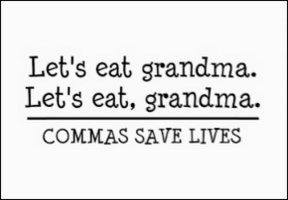This one was relatively easy. It was all in the book and could be reviewed quickly for reference as it was a very short chapter. All done in one (assonance in use).
In saying that, I think style will be the hardest thing to grasp. There are just so many different styles. It depends on the editor you have, the company you work for and even the type of writing you attempt. Style can change from one day to another depending on all of these things and many others.
But that’s the last quiz and I got 100% so …

This is onomatopoeia in action.
Should I do a victory dance…

or just stand with my foot on the book and raise my sword in the air?

Couldn’t find a picture for that one. This will have to do. Consider ‘English for Journalists’ … Vanquished!
References:
BAM. (2016). [image] Available at: https://kowieskorner.files.wordpress.com/2016/01/bam.jpeg [Accessed 5 Oct. 2016].
Sword on book. (2016). [image] Available at: http://cliffordbeal.com/wp-content/uploads/2015/10/swordbook.jpg [Accessed 5 Oct. 2016].
Victory Dance. (2016). [image] Available at: http://twistedsifter.com/2012/02/awesome-animated-gifs-series-dancing/ [Accessed 5 Oct. 2016].


